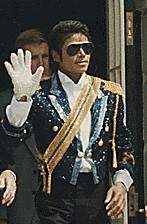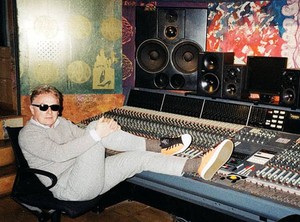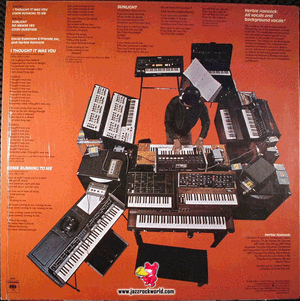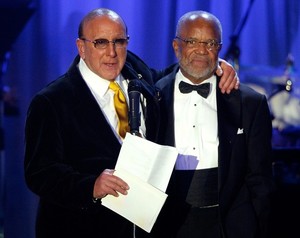Carlos
MICHEAL JACKSON
Jun 25, 2009

Jackson sang since he was a child, and over time his voice and vocal style changed noticeably, either through puberty or a personal preference to align his vocal interpretation to the themes and genres he chose to express. Between 1971 and 1975, Jackson's voice "descended ever so slightly from boy soprano to his current androgynous high tenor".[12] In the mid-1970s, the singer adopted a "vocal hiccup" as seen in "Shake Your Body (Down to the Ground)". The purpose of the hiccup—somewhat like a gulping for air or gasping—was to help promote a certain emotion, be it excitement, sadness or fear.[14] With the arrival of Off the Wall in the late 1970s, Jackson's abilities as a vocalist were well regarded; Allmusic described him as a "blindingly gifted vocalist".[150] At the time, Rolling Stone compared his vocals to the "breathless, dreamy stutter" of Stevie Wonder. Their analysis was also that "Jackson's feathery-timbered tenor is extraordinarily beautiful. It slides smoothly into a startling falsetto that's used very daringly".[151] 1982 saw the release of Thriller, and Rolling Stone were of the opinion that Jackson was then singing in a "fully adult voice" that was "tinged by sadness"
Share
1 comment
Like
Malcolm McLaren
Jun 11, 2009

In 1983 McLaren released Duck Rock, an album which mixed up influences from Africa and the Americas, including hip-hop. The album proved to be highly influential in bringing hip-hop to a wider audience in the UK. Two of the singles from the album ("Buffalo Gals" and "Double Dutch") became major chart hits on both sides of the Atlantic.
He then turned his eyes to electronic music and opera in the 1984 single Madame Butterfly, based on the opera. The track is arranged with drum machines, atmospheric synthesizers and spoken verses. It was an unlikely hit, reaching #13 in the UK and #16 in Australia. The producer of the single, Stephen Hague, became a much sought after producer in the techno pop genre following his work with McLaren on the following full length LP
Share
1 comment
Like
HERBIE HANCOCK
Jun 10, 2009

Herbert Jeffrey "Herbie" Hancock (born April 12, 1940) is a jazz pianist and composer. His music embraces elements of rock and soul while adopting freer stylistic elements from jazz.
As part of Miles Davis's "second great quintet", Hancock helped redefine the role of a jazz rhythm section, and was one of the primary architects of the "post-bop" sound. Later, he was one of the first jazz musicians to embrace synthesizers and funk. Yet for all his restless experimentalism, Hancock's music is often melodic and accessible; he has had many songs "cross over" and achieved success among pop audiences.
Share
Post comment
Like
CLIVE DAVIS AND BARRY GORDY
Jun 10, 2009

Music mogul Clive Davis and Motown founder Berry Gordy speak onstage during the Clive Davis pre-Grammy party held at the Beverly Hilton on February 10, 2007 in Beverly Hills, California.
Share
Post comment
Like